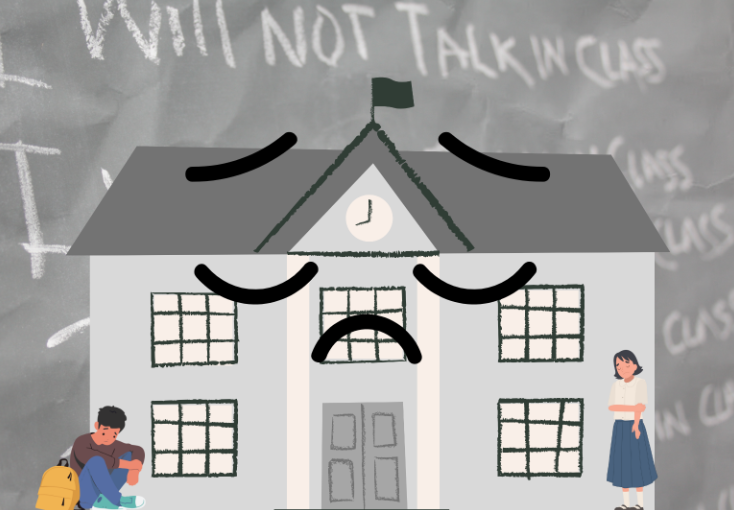What behavior warrants detention? And, which offenses carry what penalties? How much detention is attached to what behavior? One would think that LVUSD would have a clear policy delineating what conduct gives rise to detention, but the word detention does not appear anywhere on either CHS’ or LVUSD’s website.
CHS’ Discipline Policy refers to the awarding of discipline hours, however, this is entirely unhelpful in answering the foregoing critical questions. The majority of the policy talks about students being ineligible for extra-curricular activities and what happens if students do not complete their discipline hours. CHS’ Code of Conduct is similarly preoccupied with addressing anything other than what misconduct actually is, talking almost exclusively about consequences and guidelines for students involved in athletics and extracurriculars.
In fact, the only part of the Discipline Policy that refers to action that could potentially result in discipline hours is set out in the opening:
It is in the best interest of all students to maintain a good discipline record at Calabasas High School. Students are expected to be courteous and respectful to teachers, staff members, campus aides and each other. Students are responsible for following the general rules of the school and the specific classroom rules established by the teachers.
Conduct that is counter-productive and disrupts the learning environment, that is unsafe to persons and property, that violates the law, school policies or commonly accepted standards, will not be allowed and the student will be subject to disciplinary action.
With policy language as vague as these two short paragraphs, students could easily violate the policy and receive detention without even knowing their conduct broke the rules in the first place. Further, in as much as CHS has gone through so many different administrators in the last few years, the enforcement of detention has certainly fluctuated and looked different, even within a single student’s high school career. This simply should not happen. Students cannot reasonably be expected to adhere to a policy that provides essentially no notice of what is considered misconduct and subject to disciplinary action. Moreover, a policy without advance warning of potential consequences cannot be an effective deterrent. There needs to be a clear-cut, well-defined, Discipline Policy.
Students should not be surprised by any aspect of receiving detention. This was precisely the case involving an anonymous student, taken completely by surprise upon receiving several hours of Saturday detention for a first offense involving the innocuous act of placing anonymous notes in lockers on Valentine’s Day. Undisclosed complaints were allegedly made regarding the notes. The notes were placed in jest, without malice, the content contained no threat of any kind, no offense was intended, whatsoever. Taken completely by surprise at the apparent misconduct, the student immediately accepted full responsibility, expressed remorse and had no idea this would result in detention, much less several hours on Saturday. By contrast, at least one intentionally offensive message sent on an ASB Valentine’s Day Gram, according to a separate anonymous student, went unnoticed and unpunished. Making an example of such a student in this situation essentially serves no purpose and surely cannot be consistent with the intent of the Disciplinary Policy.
Objectionable behavior and the correlating consequences need to be made clear to students in the Discipline Policy, or somewhere in the Code of Conduct. Of course, not every single offense can be outlined in a single policy, but some attempt should be made beyond the ambiguity of what is currently on CHS’ website. The lack of transparency in the current policy provides no guidance and effectively serves no purpose unless the purpose is to randomly and inconsistently apply the policy on a case-by-case basis.
A more specific system of disciplinary action needs to be put in place to give students actual notice of intolerable behavior and by extension the potential consequences. Perhaps forewarned is forearmed and the policy could actually function as a deterrent.















